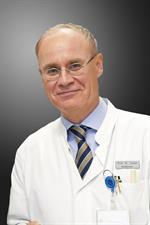 Prof. Simon's research group focuses on various aspects of wound healing research, such as the integration of artificial intelligence (AI) in the analysis, risk assessment and treatment recommendation of chronic wounds. The knowledge gained is also being used to develop new applications for AI in clinical and outpatient dermatology.
Prof. Simon's research group focuses on various aspects of wound healing research, such as the integration of artificial intelligence (AI) in the analysis, risk assessment and treatment recommendation of chronic wounds. The knowledge gained is also being used to develop new applications for AI in clinical and outpatient dermatology.
In other studies funded by industry cooperations, we are working on new immunization strategies in tumor therapy.
Together with PD Dr. rer. nat. Anja Saalbach, we are investigating the relationship between the severity of inflammatory skin diseases and obesity and the proportion of unsaturated fatty acids in the diet. We have successfully translated basic research findings into a clinical study.
We are currently investigating whether the diet we have developed can prevent the loss of efficacy of biologic therapies for psoriasis. Together with Dr. Benjamin Klein, these studies will lead to new precision medicine strategies for inflammatory skin diseases.
The Pollennet research network is also exploring new methods for predicting pollen counts using AI-based models.
Scientific Director
Prof. Dr. med. Jan C. Simon
Group leader
- Dr. rer. nat. habil. Ulf Anderegg
- PD Dr. rer. nat. habil. Anja Saalbach
- Prof. Dr. rer. nat. Sandra Franz
Topics
